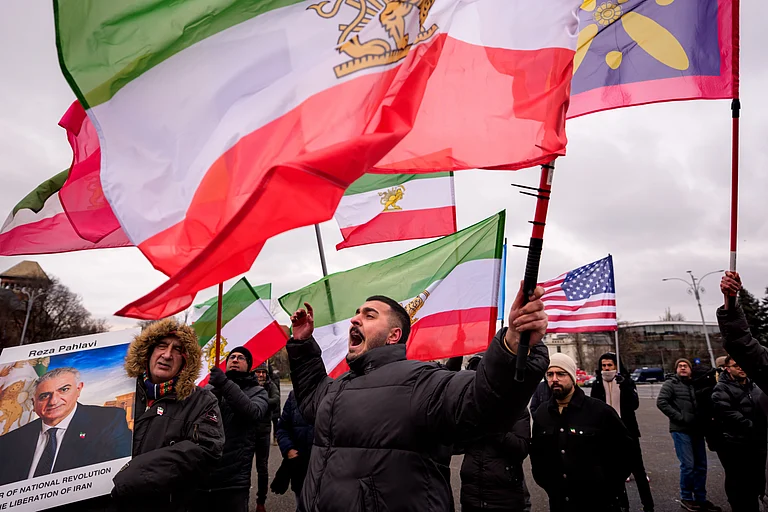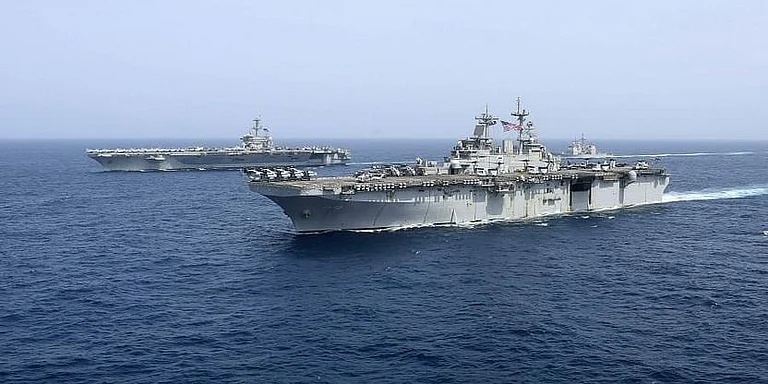As Gaza peace talks resumed on Thursday amid growing tensions in the region, a US official gave a sign that a ceasefire deal was now imminent. The official on Friday said that Middle East negotiators are sorting out the logistics for the potential release of hostages and aid distribution as part of any deal to put an end to the Israel-Hamas war.
The US official, cited by The Associated Press, said that the proposal which is currently on the table has bridged every gap between Israel and Hamas, adding that mediators were making preparations before a final deal is approved.
Meanwhile, Israel issued a somewhat vague statement, appreciating the efforts of the mediators. However, Hamas' statement did not sound enthusiastic about the latest proposal.
Middle East Tensions | Latest Updates
Israel-Hamas War | 'Closer Than Ever'
A US official on Friday said that the negotiators are working out the logistics for a possible release of hostages and aid distribution as part of any deal that could end the Israel-Hamas war.
The official noted that the current deal on the table bridges every gap between the two parties, adding that preparations were being made before a final deal gets approved.
Though it is not clear as to measures were being taken, the official said that a new "implementation cell" was being established in Cairo in advance.
This cell will focus on logistics, including freeing hostages, providing humanitarian aid for Gazans and ensuring that the terms of the agreement are met, the official added.
Mediators hoped that a deal was within a reach after two days of peace talks in Qatar. They said that the discussions had been wrapped up, noting that they plan to reconvene in Cairo next week to seal a final deal.
US President Joe Biden expressed optimism and said, "We are closer than we've ever been" to an agreement. While travelling to the Camp David presidential retreat for the weekend, Biden said, "As of an hour ago, it's (deal) is still in play. It's far from over. Just a couple more issue, I think we got a shot."
Notably, both the sides had in principle agreed to Biden's three-phase plan which was announced on May 31. The US official said that the latest proposal is the same as Biden's with some clarifications based on the ongoing talks.
However, Hamas rejected Israel's demands, which includes a lasting military presence along the border with Egypt and a line bisecting Gaza, where it would search returning Palestinians for militants.
The militant group, in a statement, said that the latest proposal moved significantly away from the previous one to which they had agreed to in principle.
On the other hand, Israeli Prime Minister Benjamin Netanyahu's office issued a statement saying it "appreciates the efforts of the US and the mediators to dissuade Hamas from its refusal to a hostage release deal".
US State Department spokesperson Vedant Patel said that the US Secretary of State Antony Blinken planned to visit Israel over the weekend to "continue intensive diplomatic efforts" towards a ceasefire deal.
Blinken is expected to meet with Netanyahu on Monday to discuss the new deal.
Egypt's President Abdel Fattah El-Sisi also spoke to Biden on Friday and agreed to intensify the efforts in the coming days to reach a final agreement.
The latest push for a ceasefire and more so for an end to the Israel-Hamas war comes in the backdrop of the Palestinian death toll rising past 40,000, as per Gaza health authorities.
Fear Of Iran Attack Looms Over Israel
With the ceasefire talks on one hand, fear of Iran attacking Israel continues to loom over the latter region.
The retaliatory attack from Iran and Hezbollah for the killing of their top commander and the political chief of Hamas -- Ismail Haniyeh -- could come at any time with little to no warning, a US National Security spokesperson John Kirby had said.
International mediators have been hoping that ceasefire in Gaza and an end of the Israel-Hamas war could stop a wider conflict in the Middle East region.
Israeli Foreign Minister Israel Katz said that he told his British and French counterparts -- who were in the country in a joint trip -- that if Iran attacks Israel, then the latter expects its allies not just to help it defend itself but also join in attacking Iran.
Katz also warned Iran, which backs Hamas, Hezbollah and Yemen's Houthi rebels, to stop the attacks. "Iran is the head of the axis of evil, and the free world must stop it now before it's too late," Katz said in a post on X.
A US official had also warned Iran of "cataclysmic" consequences and derail momentum towards a Gaza truce if it strikes Israel in retaliation for the killing of Haniyeh.
The US "would encourage the Iranians -- and I know many are -- not to move down that road, because the consequences could be quite cataclysmic, particularly for Iran," a senior US official told reporters.
On Katz's remark, the officials said that the US, with Britain and France, was preparing for "every possible contingency".



























